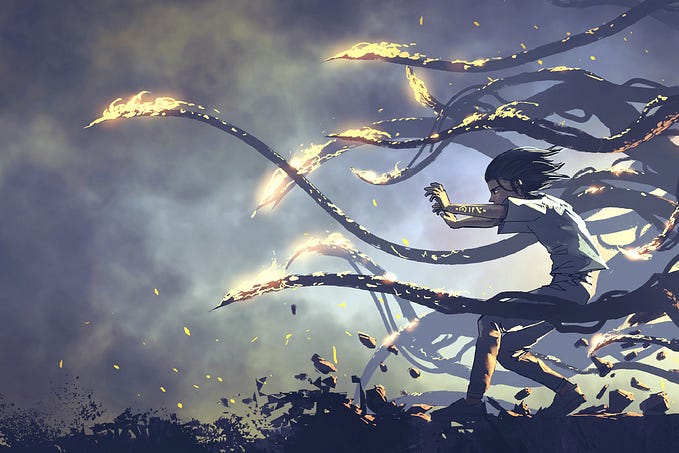Something to Die For: “Scream VI”

Would you believe that it’s taken six Scream movies to kill off a film studies professor? They’ve slashed their way through chatty cinephiles, a director, and other kinds of sycophants, but it isn’t until now, in Scream VI, that they’ve finally made good on their flirtation with the disposing of a professional smartypants. As if to remind you that the Scream movies, nearly three decades and five Presidents in, can still wink its bloodshot eye at the audience, Samara Weaving makes a brief but mildly memorable appearance as a card carrying film studies professor, ready to extol the virtues of slasher cinema as useful barometers of a given cultural moment.
Which is why we have the Scream movies, right? Beyond the adrenaline of its spectacle, set pieces, and a solid handful of jokes, the Scream movies have arguably always supposed to have functioned as somewhat of a funhouse mirror, able to synthesize the various social or political anxieties sublimated into the other movies of its era and spit them back out to the audience explicitly (via movie “rules”), with a blood-smeared grin. Wes Craven used Kevin Williamson’s screenplay as an apparatus to continue a nearly career-long fascination with the dialectical relationship between on screen violence and audience reaction. And for much of the franchise, the media has slithered around as a parasite, feeding on the misfortunes of its Final Girl, Sidney Prescott (Neve Campbell). And here we can use “media” in an extremely broad way: the local news circus around the death of Sidney’s mother, the best selling books peddled by careerist Gale Weathers (Courtney Cox), and the Hollywood industry itself, always eager and willing to make a cheap buck.
In the first groundbreaking movie from 1996, Scream had its body and slashed it too, pointing out all the tropes and cliches of a horror subgenre that was on its last legs while delighting in its pleasures. Randy Meeks (Jamie Kennedy) could stand in front of a TV playing the original Halloween and tell the audience about the “rules one must abide by in order to survive a horror movie”, while every other character could all but ignore them and end up in a body bag. Finally, the cognitive dissonance of pretty people making bad decisions had an internal logic, while also making self-referentiality the new default mode of how to make anything in pop culture. Scream 2 tackled sequels with a smirk (as well as introduced the in-universe Stab movies, turned the franchise even more into self-reflexive maze), and Scream 3’s aspirations widened to implicate Hollywood writ large as a machine that not only pumped out trash but also exploited real life tragedy. That one had Sidney go to Tinseltown only to be confronted with the actors playing versions of the characters from the first film, in a twisted and uncanny way (Parker Posey as Courtney Cox as Gale Weathers!). Though Scream 3 is thought of as the weakest of the sequels, it still contains a fury towards the contradictory nature of consumption of spectacle and real life “harm” that feels like a defining component of the Craven films.
The term “media” has become more elastic, both in the real world and the facsimile in the movies: everyone’s armed with a camera phone and a social media account, aiming to be in the spotlight “whatever the cost”. But that’s an observation that was made two films ago in Scream 4, Craven’s final film and the last Williamson worked on. Released in 2011, Scream 4 came at just the right moment to anticipate, amongst other things, franchise fatigue and the Internet as fame monster maker. And the movie was also mean enough to be skeptical of its own existence, in spite of the various behind the scenes debacles that occurred during production.
With Scream 4’s villain motivated by the hunger sparked by the web, the ultra new and shiny reboot — I’m sorry, “requel” — 5CREAM’s villains were… motivated by the web. And Scream VI’s? Also psychotic children of the internet. With its college setting, Scream VI is just (Scream 4 + 5cream) x Scream 2. So, what’s Scream got left to say anyways?
There are vague gestures in 5CREAM to Reddit forums, redpilling, and fandom resentment, but Ready or Not filmmakers Matt Bettinelli-Olpin and Tyler Gillett and writers James Vanderbilt and Guy Busick appear ill equipped to make a meaningful connection between the Scream movies and the culture within which they exist. If it already looked like the snake was running out of tail to eat, Scream VI does not offer a promising future. In a way, maybe they’re not to blame: after all, the movies backed themselves into a corner by making themselves predicated on a tricky gimmick that has become a dominant language for a lot of pop culture. The Scream movies must be, in addition to entertaining hybrid slasher whodunnits, able to comment upon the state of horror, cinema, and the culture that births them. Hardly an easy task, such that even Williamson has backed way from too much of an eyebrow waggle in his latest film Sick (which is pretty good!).
At best, Scream VI offers us a world in which Sam Carpenter (Melissa Barrera), daughter of Billy Loomis, has fallen prey to being the center of a conspiracy theory that has proliferated online asserting that it was she who orchestrated all the deaths in the previous film. She whimpers in one scene, “It is so hard to be hated this much by everyone” or something. If you think you know where this is going, you’re right.
But to be the object of online scorn feels like a first thought idea, surfacey and obvious. It has all the depth of a Bill Maher monologue, but Scream VI isn’t even interested in committing to that thorough of a (cinematic) politic. It’s buried its head too far up its own nostalgic ass while waving away accusations of laziness by calling out the fact that much of what is driving the movie is nostalgia. Yet, like the previous film, it’s absent of a real, meaty consideration of what nostalgia feels like and how it can poison the mind, or at least trap it in a state of arrested development. (That 5cream is too busy throwing around random red herrings definitely kneecaps any concerted effort to a more thoughtful point of view on this topic.) So instead the audience is just dragged deeper into byzantine lore and a web of connections that bog the movie down tediously, and rather than have those familial connections be a reflection or refraction of whatever the movie wants to say about our culture of violence or what have you, it digs its heels into the legacy aspect of the whole enterprise.
You’ll hear the word “legacy” a lot in Scream VI, and it is spoken with the same enthusiasm as “requel”, even though it’s actually a real word. These new rules (in New York, no less!) are basically “it’s a franchise, there are no rules”, which is neither exciting on narrative grounds nor insightful on intellectual ones. (Also, Scream 3 already pulled the “all bets are off” thing, so.) Too little is made of how our franchise-addled society and these movies are in dialogue with one another, and how they’re connected to a wider understanding of consumption in an era of so much content. Thus, the film is relegated to regurgitate the word “legacy” ad infinitum. Like in 5cream, legacy is meant to carry a kind of double meaning that ultimately conveys these reboots’ own anxieties: Sam is running from who she might “truly” be, which is to say a killer like her father, and the movies are trying to escape the shadow of the originals. Both attempts are impossible by necessity. But it gives these newer films a false problem that it feels like it never owns up to: either be the best version of a Scream movie or be something entirely different. So far they’ve been neither. And with nowhere to turn, it tries to claim its contradictions as subversions, but isn’t confident enough to pull it off.
There’s the sneaking suspicion that Scream VI, like Sam and her relationship to her lineage, would rather be any other slasher movie: just a random one that takes place in New York that can use the cityscape and its harsh environs without the worry of having to outsmart its characters, much less viewers. And the best moments of the movie bank on the thrill of its set pieces rather than the ouroborosian runarounds: the subway scene with flickering lights, the bodega scene, and the window set piece. The other kills, which try to assert these Ghostfaces as inclined to linger on brutality, are kind of fun, but feel weighed down by their obligation to make them Scream-y: knowing and wry and meta. And so it feels like, throughout Scream VI, that it’s just vaguely trying to justify its own existence, albeit poorly. It’s a shame, because the final, maybe actually subversive line of a solid opening makes a promise that’s bound to be broken: “Who gives a fuck about movies?”










